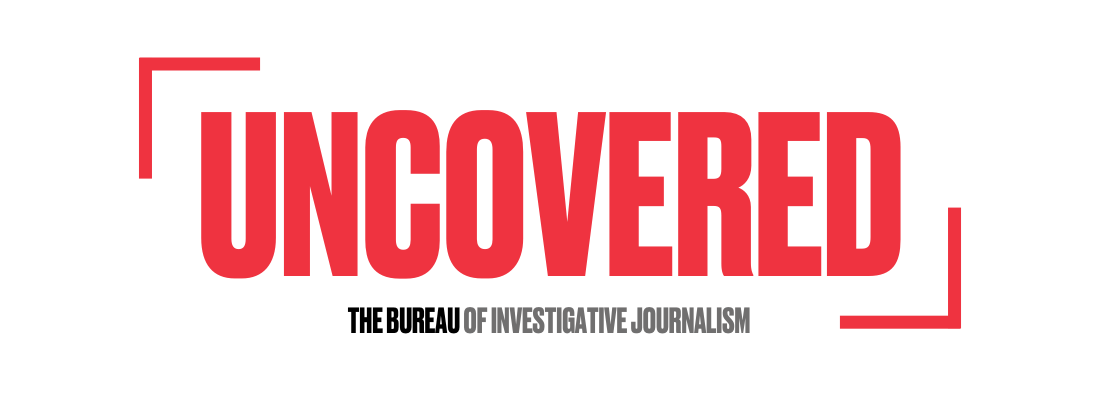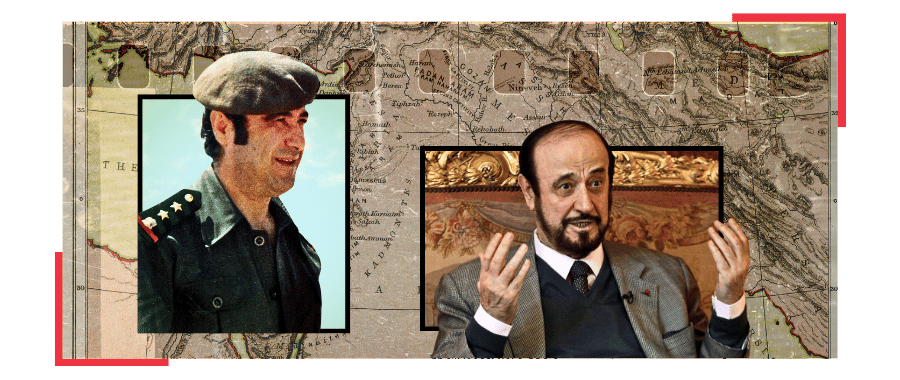
“Giving the Panama Canal to Panama was a very big mistake.”
Hi {{ First name | there }},
Donald Trump will be inaugurated as the US’s 47th president on Monday. I’m sure he’ll be closely paying attention to how big the crowd is supporting him, but I’m going to preview his term through the lens of three of the areas we specialise in: climate, Big Tech and corruption.
Trump poses many threats to the global climate. First, there’s his threat to pull the US out of the Paris Agreement (and possibly even the UN Treaty it was negotiated under). Then there’s the possibility that, under his "drill, baby drill" mantra, he’ll boost US fossil fuel production and cut incentives for alternative energy.
This time last year, President Biden halted the approval of new high-polluting liquified natural gas terminals on the US Gulf Coast, which would have largely processed gas tapped using water-intensive fracking. Trump has said he’ll lift the ban, potentially multiplying planet-heating emissions and risking the health and livelihoods of the communities that live in the projects’ shadows. Given the staunch opposition, however, this could face lengthy legal challenges.
Trump has also said he’ll dismantle Biden’s Inflation Reduction Act (IRA), a cornerstone policy that included incentives for alternative energy. The Democrats tried to Trump-proof the IRA by offering tax credits for a range of energy sources, including some that Republicans tend to approve of, such as nuclear and geothermal. Still, Trump sees it as a costly legacy of the Biden administration, so it remains in the crosshairs.
Finance for the global low-carbon transition also faces threats. Global climate talks had already stalled over how much rich countries should stump up to help poorer nations deal with climate chaos. The exit of the world’s top total emitter from Paris leaves climate-vulnerable countries with little hope of securing the funds they need.
US banks, too, expect further hostility against what some prominent Republicans call “woke capitalism” – a backlash against finance with social or environmental goals. We’ve revealed how several major banks have gone against their own climate policies to put billions into dirty energy projects. Without the banks, they wouldn’t get built.
Before Trump’s inauguration, the six biggest US banks quit the Net Zero Banking Alliance, a global group launched at climate talks in Glasgow in 2021 that sets targets for slashing financed emissions.
Late last year a group of Republican senators sued a few of the biggest asset managers, arguing the finance sector’s coordinated target-setting disadvantaged sectors like coal. Rather than defend their position, major asset managers like BlackRock have ditched their equivalent net zero group. Check out our Environment Editor’s analysis of what’s going on there.
When countries came together to sign the Paris Agreement, aiming to limit global temperature rises to 1.5C by the end of the century, it was hailed as a watershed moment. But scarcely a decade later, we’ve already hit that threshold. The LA fires are a terrible reminder of the risks to all of us.
None of this means we should abandon all hope. Every 0.1C of heating presents new climate risks for vulnerable populations everywhere. So limiting every 0.1C matters.
Beyond this, solar and wind are now the lowest-cost energy sources globally, according to the Institute for Energy Economics and Financial Analysis. They’re expected to become even cheaper by 2030, so economics will help where politics is failing.
Whatever positions banks take publicly, they know the transition to renewables is happening apace. Because of Trump’s politics, they might move from overstating climate credentials to understating them. But the favourable economics mean they may still meet their own climate commitments – and you are helping us hold them to account.
Trump and Big Tech
You may have seen reports that tech titans Elon Musk, Mark Zuckerberg and Jeff Bezos might be sitting next to each other at Trump’s inauguration, allowing him to enjoy chatter about how the richest men in the world are in his pocket.
Last week, we dissected how the changes already announced by Zuckerberg, the founder of Meta, suggest social media will become even more toxic. Both hate speech and disinformation will have free rein. At the same time, Trump’s approach to TikTok, which is facing a US ban, will have a huge impact on what people in the US and around the world see online. Al Jazeera came into the office to interview our Big Tech Editor Jasper Jackson about this dynamic this week. Watch out for this.
Trump’s newly cosy relationship with the tech industry may not last, but tech companies are expected to lobby for deregulation. This is likely to be immediately successful around social media content, and AI companies are also heavily invested in sucking up to Trump.
Trump’s presidency may also have huge implications for ongoing competition cases against Google and others over their dominance in areas such as advertising. Trump may want to continue using legal means to punish Big Tech, but he and many in his circle have also attacked the Federal Communications Commission, which regulates the industry, for attempting to get involved.
Zuckerberg’s public statements indicate he expects Trump to support a fightback against the EU, which has taken the lead in attempting to regulate tech giants. Early indications suggest the EU may already be planning to soften its attempts to enforce the Digital Services Act and other similar rules.
It’s important not to miss that Trump’s approach to military conflict could have big implications for the deployment of artificial intelligence in war zones. We recently looked into AI tools trying to broker peace deals, including in the Middle East; you can read about what we found here.
More broadly, Trump’s approach to Ukraine will almost certainly affect the ongoing development of new drone warfare, and the closely related use of AI. European countries are already investing heavily in drones that rely to various degrees on automation.
New conflicts would also open up opportunities for the development and sale of AI-driven military technology. It’s worth noting that two of the world’s most prominent AI military tech companies, Palantir and Anduril, are run by close Trump allies, Peter Thiel and Palmer Luckey respectively. Given Trump’s susceptibility to influence from his pals, I would expect their access to him to mean AI military tech gets a good hearing in the Pentagon.
And obviously, if Trump invades Canada, Greenland or Panama, AI weaponry will be part of the picture.
Our team is closely watching all of this. With your support, we can keep holding all of the tech companies that could enable Trump’s worst impulses to account.
Factchecked!
Each week we reveal a fascinating fact from our reporting…
Did you know?
You are 30 times more likely to get a urinary tract infection (UTI) if you have female anatomy.
Find out more
In women, the urethra – the tube that releases urine from the bladder – is on average an inch and a half long. That’s about a fifth the length of a man’s. This makes it easier for bacteria to enter the bladder or kidneys.
Globally, over 400 million people suffer from a UTI every year. Up to half are likely to get another within a year.
Read more about recurrent UTIs and the rise of drug-resistant infections here.
The picture for Putin
TBIJ has revealed all sorts of stories about how the UK and its international financial networks help kleptocrats, oligarchs and organised criminals hide their money. Just last month we revealed how a professional in Guernsey had helped Bashar al-Assad’s uncle hide tens of millions of allegedly embezzled funds in a property empire in western Europe.
But we do look over the pond too. Trump could erode some of the hard-fought progress made on improving the rules aimed at limiting the flow of dark money.
Firstly, he’s already shown scepticism toward international regulatory bodies and agreements. In his last term, Trump’s administration showed little interest in initiatives like the Organisation for Economic Co-operation and Development’s Base Erosion and Profit Shifting project, aimed at tackling tax avoidance by multinational corporations and wealthy individuals. His new presidency could have a ripple effect, taking any momentum out of global attempts to tackle issues like tax avoidance, money-laundering and transparency.
In terms of domestic laws, in 2018 the Trump leadership rolled back portions of the Dodd-Frank Act to relax oversight of financial institutions. And in early 2021, Trump exercised a presidential veto against the National Defense Authorization Act. This included the Corporate Transparency Act (CTA), which aimed to eliminate anonymous shell companies often used for illicit activities like money laundering and tax evasion. As our reporting has shown over and again, these shell companies are the vehicles for hiding ill-gotten gains.
But other institutions fought back – Congress overrode his veto with bipartisan support, and the CTA became law. It could come under attack again.
Trump might also make things easier for all those oligarchs the US sanctioned for their connection with Putin’s regime after Russia’s invasion of Ukraine in 2022. It’s quite hard to predict how he will deal with Russia right now, but that in itself is a source of concern.
Whatever he does, institutions like Congress and members of the Treasury and State Department may try to stand in his way. That said, many senior figures walked out when he was elected, fearing they might get axed anyway.
The US sanctions are globally important, because they mean that those targeted are blocked from using US dollars, the most-used currency in the world. Dropping sanctions would undermine efforts by the UK and EU to sanction Russia. As we’ve shown, sanctions aren’t always effective, but eroding the system would clearly strengthen Putin’s hand.
Ceasefire in Gaza
As Israel and Hamas agree a ceasefire in Gaza, it’s worth remembering that this has been the most lethal conflict for journalists on record. The Committee to Protect Journalists (CPJ) has been determined to raise awareness around this and has documented the deaths of 165 journalists and media workers. Another 49 have been injured.
Two journalists are also missing and 75 arrested, CPJ reports. Palestinian journalists in particular have sacrificed their lives to bear witness to the death and destruction in Gaza. Often they and their families are the victims.
One thing the ceasefire should allow is free access to Gaza for journalists from around the world. When our antimicrobial resistance reporter Misbah Khan wrote about how the bombardment was worsening the superbug crisis in Gaza, she had to rely on shaky communication with doctors hundreds of miles away. Imagine the stories we’ll see once the world’s media can get on the ground in Gaza again.
What we’ve been reading
🔴 Berkshire Hathaway, the enegry company chaired by Warren Buffett, is running the dirtiest set of coal power plants in the US reuters.com
🔴 A year-long investigation has exposed an orchestrated campaign around PFAS, the near-indestructible chemicals linked to a dozen illnesses foreverpollution.eu
🔴 Some of the most significant polluters in the world, inclding oil giants, are taking advantage of ‘green loans’ from major banks theexamination.org
🔴 And one to watch: This film about how a Kenyan camp for those fleeing conflict in Somalia is now home to hundreds of thousands of climate refugees youtube.com
Thanks,
Franz
Franz Wild
Editor





